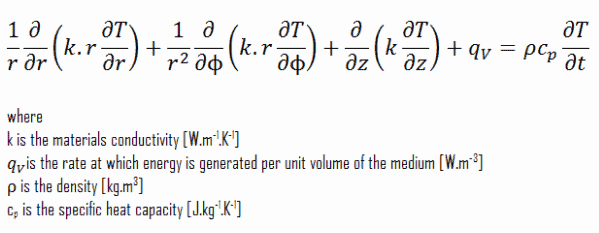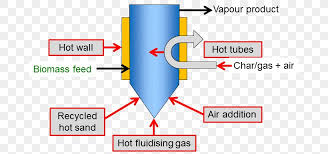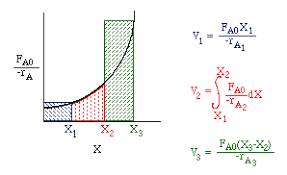
:In this Article we are going to discuss about What Really Chemical Engineering is?
A lot of senior school students feels boring to read chemistry as it largely seems to be a theoretical and hypothetical subject which is mainly based on assumptions and a cramming subject. After cracking engineering entrance exam like JEE ,students remain in dilemma and feared if they should read Chemical engineering in their graduation as students are more inclined towards mathematics and Physics during their school days. But is it really "Chemistry " in Chemical Engineering ?
- Will you be reading the organic chemistry and cramming those reaction mechanisms?
- Will you be isolated from mathematics and physics?
- Will you be cramming exceptions in Inorganic Chemistry?
- Will you still be trying to learn periodic table,s-p-d-f blocks elements,their properties?
- Will you still be reading those coordination compounds and trying to learn chemical reactions or those hypothetical electronic structures using VSEPR or MOT?
Luckily,the answer to above all questions is a BIG BIG '''NO''.
In fact ,you will not even get a single question of these topics throughout your graduation.
In fact ,you will not even get a single question of these topics throughout your graduation.
In the next five minutes, a lot of your fear,myths and speculations will be waved off. Just be patient for five minutes.
Lets Start!!
First ,I want to show you some pictures which speaks on their own like the statements of Ian Bishop ( West Indian Commentator)
1.

2.
. 
(Petroleum Industry is the main destination of Chemical Engineers)
3.

(As evident from this figure ,Chemical engineers mainly work as a process engineer,not as Chemist)
Let's Check out the most important subjects which one will be reading during his graduation:
1. Mathematics:
Mathematics plays the most important role in Chemical engineering. It is the backbone of chemical and mechanical engineering. One can expect Linear Algebra-II (Matrices ,Complex Numbers) , Multivariable calculus ,3-D geometry ,Probability and Statistics ,Numerical techniques to solve Algebraic equations,Trancedental equations,Integration and Differential equation.Mathematical Modelling and simulation is the another topic which is almost used in every chemical engineering subject.
(The most famous equation of Fluid Mechanics which will be simulated using CFD tools Like MATLAB,SciLab)
2. Fluid Mechanics:
Then the introduction of Dimensional analysis, Buckingam Pi theorem and dimensionless numbers like Reynolds number, Euler Number,Cofficient of friction. Then one will be reading flow through pipes,Hagen Poiselle's Law,Darcy friction factor,boundary layer flow and the famous applications of Navier Stokes equations ending with turbulent flow and its properties.
(Boundary Layer problem)
3. Heat Transfer and Operations:
Another subject with mathematics as its backbone. The subject intensively uses mathematics throughout the course. Starting with conduction through flat surfaces ,spherical and cylinderical surfaces ending with fins ,semi infinite plates and solution to Laplace equations.


The convection part is directly linked with Boundary layer flow ,Continuity equations of fluid mechanics. So,it is highly advised to brush up the concepts of Fluid Mechanics before reading Convection part. It starts from forced convection with topics like momentum conservation,heat energy balance with heat transfer through laminar boundary layer. It deals with many dimensionless numbers in a detail like Nusselt Number,Prandtl Number,Reynolds number,Grasshoff Number,Schmidt Number for laminar and turbulent flow. It involves a lot of formulas and mathematical calculations followed by Buckingam Pi theorem.


The convection part is directly linked with Boundary layer flow ,Continuity equations of fluid mechanics. So,it is highly advised to brush up the concepts of Fluid Mechanics before reading Convection part. It starts from forced convection with topics like momentum conservation,heat energy balance with heat transfer through laminar boundary layer. It deals with many dimensionless numbers in a detail like Nusselt Number,Prandtl Number,Reynolds number,Grasshoff Number,Schmidt Number for laminar and turbulent flow. It involves a lot of formulas and mathematical calculations followed by Buckingam Pi theorem.
Then Radiation is also be explained in detail which will include concepts of shape factors, emmisivity ,absorbance,reflectance,Stefan's Law, Boltzman Law,Wein's displacement Law.
Then starts the practical portion of Heat transfer:
It will start with boiling and condensation process,explaining evporation process and its instruments like single and multiple effect evaporators in detail followed by heat transfer through packed bed and fluidised beds.

It will be followed by one of the most important topic of Heat Transfer which has very high usage and importance in Chemical and mechanical industries : ''Heat Exchangers".

One shall be reading LMTD, U,dirt factor ,pressure drops across the flowing fluid , baffles in a shell and tube heat exchanger, Double pipe heat exchangers. It will help you to master in designing of heat exchangers.






4. Process Dynamics and Control:
This subject is much about mathematics than the subject itself. It is purely a mathematics subject with a little bit or negligible amount of theory .
It shall be a totally a new subject involving laplace transforms control systems,how a system output changes with a particular input like step input,ramp input on first order as well as second order system. It will be followed by P,PD,PID controllers,their stability,Bode plot,Routh Stability Criteria of various systems and Root locus system.
Then one will learn about frequency response, control valves ,cascade control,feed forward controls etc.
5. Chemical Reaction Engineering:
One of the most important subject for chemical engineering along with Heat Transfer, Mass Transfer and Unit Operations.
Divided in 2 parts: CRE-I and CRE-II.
CRE-I covers the handling of reactants ,their reaction conditions, their rate kinetics and catalyst activities. It starts with kinetics of various reactions like first,second,zero,third order reaction followed by autocatalytic ,reversible,series and chain and parallel reactions. The next topics will include design equations of Plug Flow Reactors (PFR),Mixed flow reactor (MFR) and CSTRs and their optimization.
One will be reading residence time distribution,mean time,combination of reactors ,compartment models and dispersion models in subseequent chapters.
CRE -II will discuss about adsorption,diffusion and heterogeneous catalysis. It will help one understand fluidized bed reactor and packed bed reactors.
You will come across various concepts like detailed analysis of activation energy, rate controlling steps in reactions involving mass transfer and ending with enzymes and biocatalysts.
No comments:
Post a Comment
Anyone having any query,suggestions or advice,please let me know.